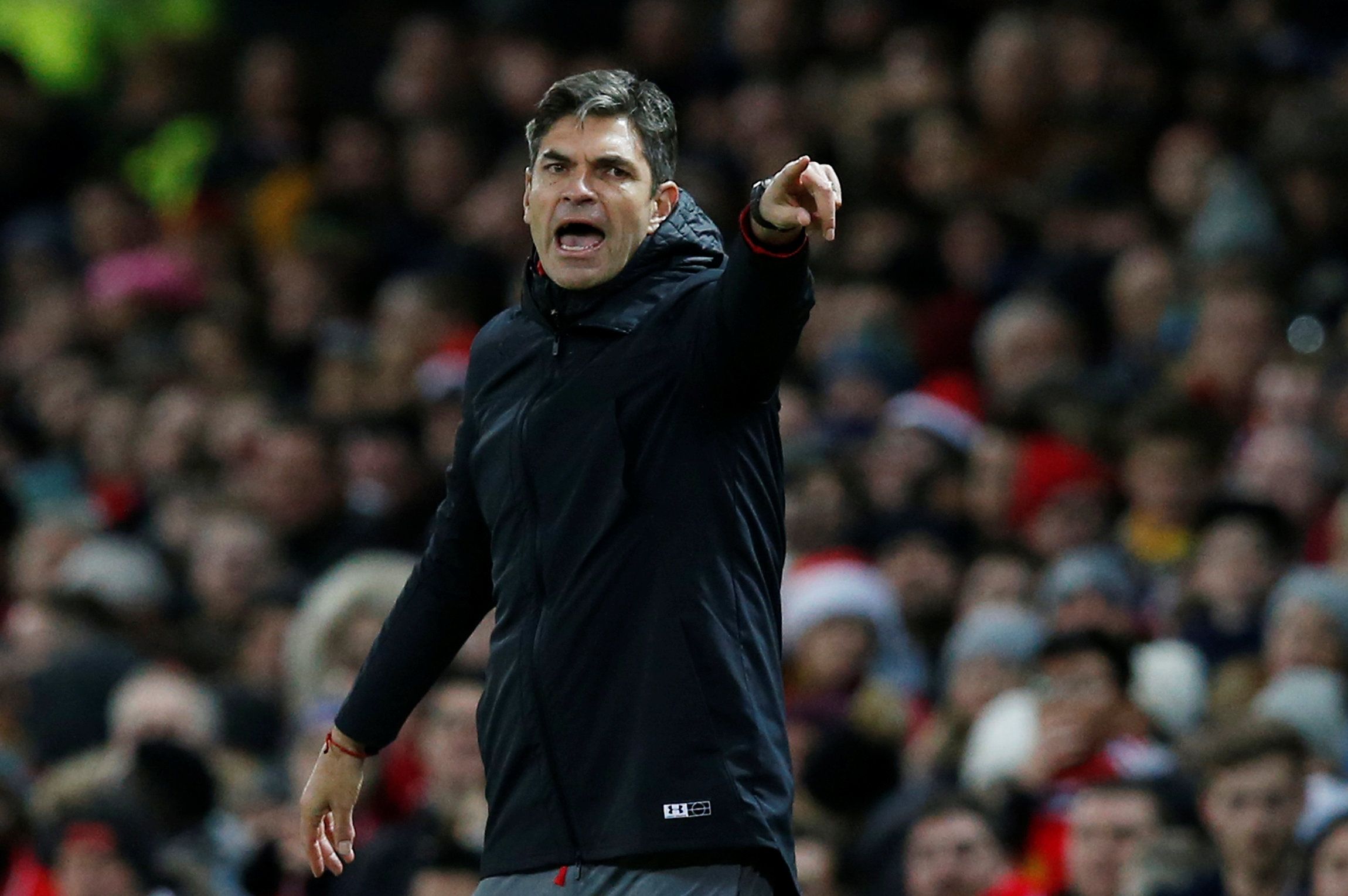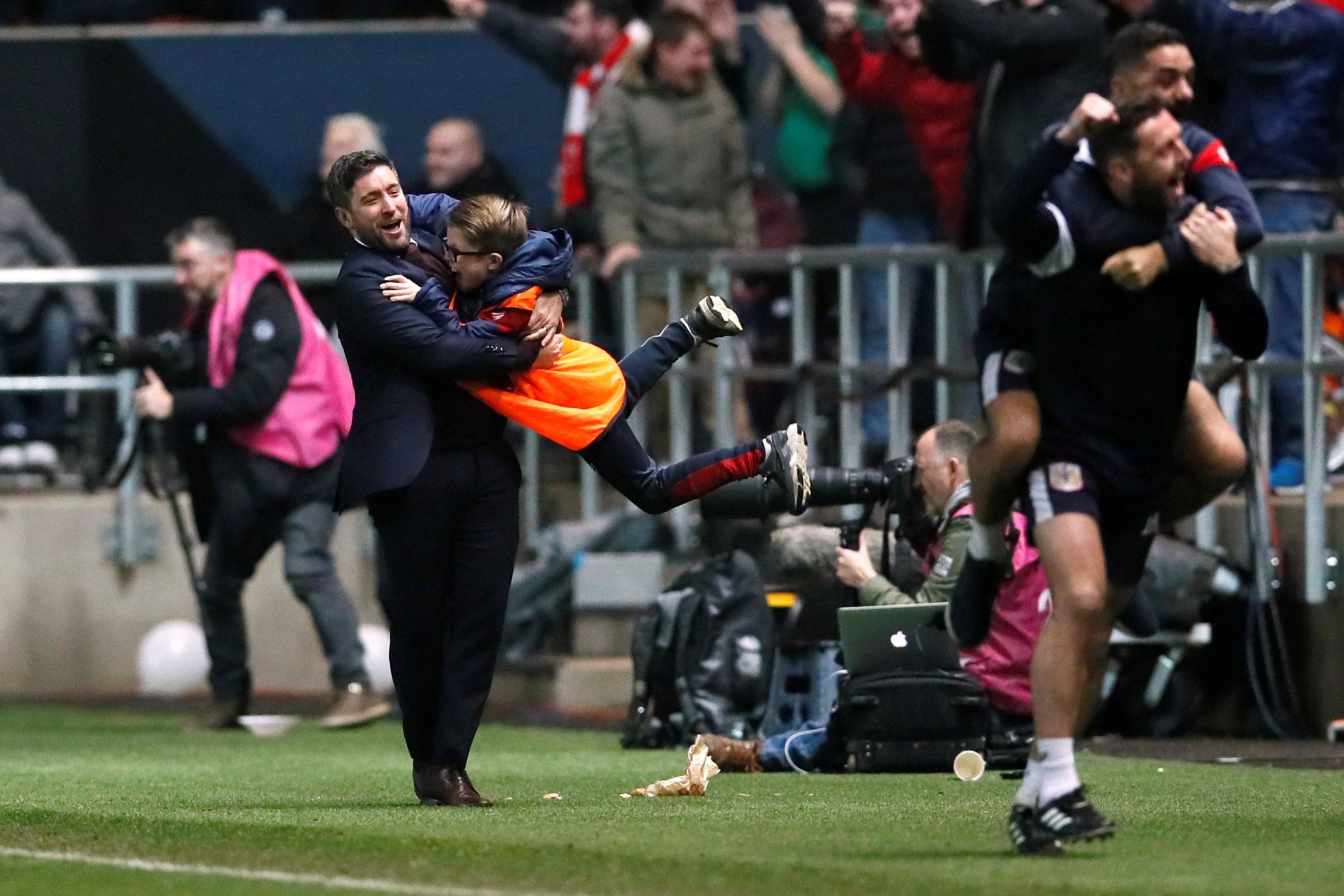When pundits and journalists berate the lack of chances for English managers in modern football, there are two tiers to that argument. The first is obvious and factually unavoidable; no English manager has ever won the Premier League title and in the past decade, Harry Redknapp is the only one to last more than half a season with any of the top flight’s big six. Instead, Sam Allaryce, Alan Pardew and likewise company have been caught in a revolving door, swinging them around lower-mid-table clubs seeking a sure-fire way to avoid relegation.
But the second level is arguably more significant, because it directly seeps into the first. Upon failing to acquire the services of a Pardew or Allardyce, Premier League clubs are faced with two inevitable options - promote a manager from the Football League or bring in someone from abroad. As the Premier League has steadily become the world’s first truly globalised league, suave suits, exotic formations and accented surnames have persisted over the less fashionable, more familiar offerings from the Championship.
And yet, the chances of a foreign manager succeeding in the Premier League are no greater than an English one moving into the top flight for the very first time. For every Marco Silva or Mauricio Pochettino, there is a Pepe Mel or Andre Villas-Boas. Every appointment comes with risk and that is precisely why so many pundits argue the pejorative stasis of English managers is as much a consequence of a manufactured sense of vogue as it is actual performance compared to resources.
There’s also a growing argument, especially amid the age of the ever-shortening managerial tenure, that not enough research is done before the cycle of fire and hire commences at any given club. It’s certainly true that the unprecedented level of sports science and statistical analysis involved in player recruitment isn’t applied to recruiting managers, at least not with the same scrupulous detail and longevity.
That particularly rings true at Southampton, a club once famed for their revolutionary Black Box that parted company with Claude Puel after just one season and is now enduring issues with his successor Mauricio Pellegrino, which have gone on too long to be considered mere teething pains. Considering how abruptly Saints dismissed Puel after finishing eighth, albeit somewhat fortuitously, and almost beating Manchester United in the League Cup final, it wouldn’t be surprising to see Pellegrino moved on before the summer. A team deemed too talent and a club deemed too well-run for the relegation scrap now finds itself spared from the drop zone by goal difference alone.
And should that be the case, Southampton will face the similar dilemma; recruit from abroad or the lower leagues. While the sheer vastness of the former category throws up too many names and variables to be accurately considered at this moment in time, one English candidate from the Football League unequivocally stands out - Bristol City’s Lee Johnson.
If we apply the same kind of scientific metrics used in player recruitment, Johnson’s results are truly staggering - but especially for a 36-year-old manager undertaking his first job at Championship level. At the expense of just £11million, an upper-mid-table outlay for the second tier, Johnson has transformed a Bristol City side that avoided relegation under his watch by just three points last season into candidates for automatic promotion, now laying just two points away from Derby in second.
Although such drastic turnarounds are hardly unheard of in the Championship - Cardiff City have transformed their fortunes under Neil Warnock as well, while Sheffield United are seventh after gaining promotion from League One last season - it’s less usual for positive, attacking football implemented by young, English players to be at the beating heart of one. Excluding veteran goalkeeper Luke Steele, the average age of those to have started in the Championship for Bristol this season is just 24.6 years.
Perhaps because of the youthful enthusiasm and fearlessness young players bring to teams at all levels of the game, only the top two have scored more goals than the Robins’ 40 this term, while averaging the seventh-highest possession, 52% of any side in the division. There’s a frightening tempo to the way they play as well, and the use of academy players like Joe Bryan has created a real sense of local identity, something the city of Bristol has lacked in footballing terms for far too long. Johnson's impact on the club has stemmed far beyond simply positive results.
Of course, defying the odds in the Championship is one thing, but this season’s Carabao Cup run has added a unique element to Johnson’s CV, one that leaves him better-placed than most other young English managers in the Football League.
Scenes of swivelling around a rogue ball boy have become iconic after Bristol City unexpectedly beat Manchester United in the quarter-finals, but that victory was just the tip of the iceberg; Bristol City have now beaten four Premier League sides this season, the same amount as Swansea City and Southampton, and Johnson himself has beaten twice as many as Tony Pulis - a manager once revered as a stalwart of survival, consequently worth his weight in gold.
Those closest to Johnson, though, wouldn’t be all that surprised. The son of Football League management veteran Gary Johnson, forced to end his playing days somewhat prematurely due to injury, spiritualists will argue Lee was born to manage. The evidence thus far suggests that’s the case; Johnson is a self-confessed football geek and management obsessive, who has an interactive tactical whiteboard in his own living room and has embraced every innovation that’s come his way - the most recent being using drones on the training pitch. As Gregor MacGregor from the Bristol Post argues, all the signs suggest he’s destined for the top.
"The Newmarket-born boss is destined for the top and it’s a pleasure to be able to see such a coach working at close hand... one way or another is heading for the upper echelons of the game. He has the devotion, acumen, personality, craving and understanding to climb said tree."
And on Tuesday night, Johnson will get another chance to taste what life at the top is really like. Bristol City’s prize for beating United is a double-legger with their Premier League pace-setting rivals Manchester City, comfortably the best team in England if not the whole of Europe this season under Pep Guardiola.
In many ways, this clash is like an audition; while nobody expected Bristol City to get this far, let alone expect them to dish out the Citizens’ first defeat of the campaign, taking them as close as any Premier League side has this term will be an incredible moral victory for the Robins and their rising managerial star - one that can't be simply ignored as a young manager doing well in the Championship, and one that compares favourably with what most foreign alternatives can offer in terms of credentials.
No doubt, that will catch the eye of Stoke City, who currently offer the only vacancy in the Premier League. But Southampton feel like the better fit for a young manager who, as highly-rated as he is, still has much to learn about top-flight football. Johnson’s ethos of creating attacking football by working with young players, often academy products, fits perfectly into the Southampton way and amid an era in which non-top-six clubs are trading exciting football for acceptable results, the Bristol City boss stands out as a manager with the courage and conviction to deviate from that norm.
In fact, like they would if a promising striker or attacking midfielder became available on the transfer market, Southampton might be wise to act before the Potters beat them to it.
https://video.footballfancast.com/video-2015/january-window.mp4



